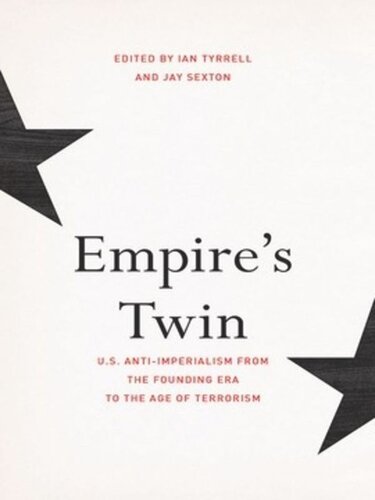

Most ebook files are in PDF format, so you can easily read them using various software such as Foxit Reader or directly on the Google Chrome browser.
Some ebook files are released by publishers in other formats such as .awz, .mobi, .epub, .fb2, etc. You may need to install specific software to read these formats on mobile/PC, such as Calibre.
Please read the tutorial at this link: https://ebookbell.com/faq
We offer FREE conversion to the popular formats you request; however, this may take some time. Therefore, right after payment, please email us, and we will try to provide the service as quickly as possible.
For some exceptional file formats or broken links (if any), please refrain from opening any disputes. Instead, email us first, and we will try to assist within a maximum of 6 hours.
EbookBell Team

4.1
80 reviewsAcross the course of American history, imperialism and anti-imperialism have been awkwardly paired as influences on the politics, culture, and diplomacy of the United States. The Declaration of Independence, after all, is an anti-imperial document, cataloguing the sins of the metropolitan government against the colonies. With the Revolution, and again in 1812, the nation stood against the most powerful empire in the world and declared itself independent. As noted by Ian Tyrrell and Jay Sexton, however, American "anti-imperialism was clearly selective, geographically, racially, and constitutionally." Empire's Twin broadens our conception of anti-imperialist actors, ideas, and actions; it charts this story across the range of American history, from the Revolution to our own era; and it opens up the transnational and global dimensions of American anti-imperialism.By tracking the diverse manifestations of American anti-imperialism, this book highlights the different ways in which historians can approach it in their research and teaching. The contributors cover a wide range of subjects, including the discourse of anti-imperialism in the Early Republic and Civil War, anti-imperialist actions in the U.S. during the Mexican Revolution, the anti-imperial dimensions of early U.S. encounters in the Middle East, and the transnational nature of anti-imperialist public sentiment during the Cold War and beyond.Contributors: Laura Belmonte, Oklahoma State University; Robert Buzzanco, University of Houston; Julian Go, Boston University; Alan Knight, University of Oxford; Ussama Makdisi, Rice University; Erez Manela, Harvard University; Peter Onuf, Robert H. Smith International Center for Jefferson Studies, Monticello, and University of Virginia; Jeffrey Ostler, University of Oregon; Patricia Schechter, Portland State University; Jay Sexton, University of Oxford; Ian Tyrrell, University of New South Wales